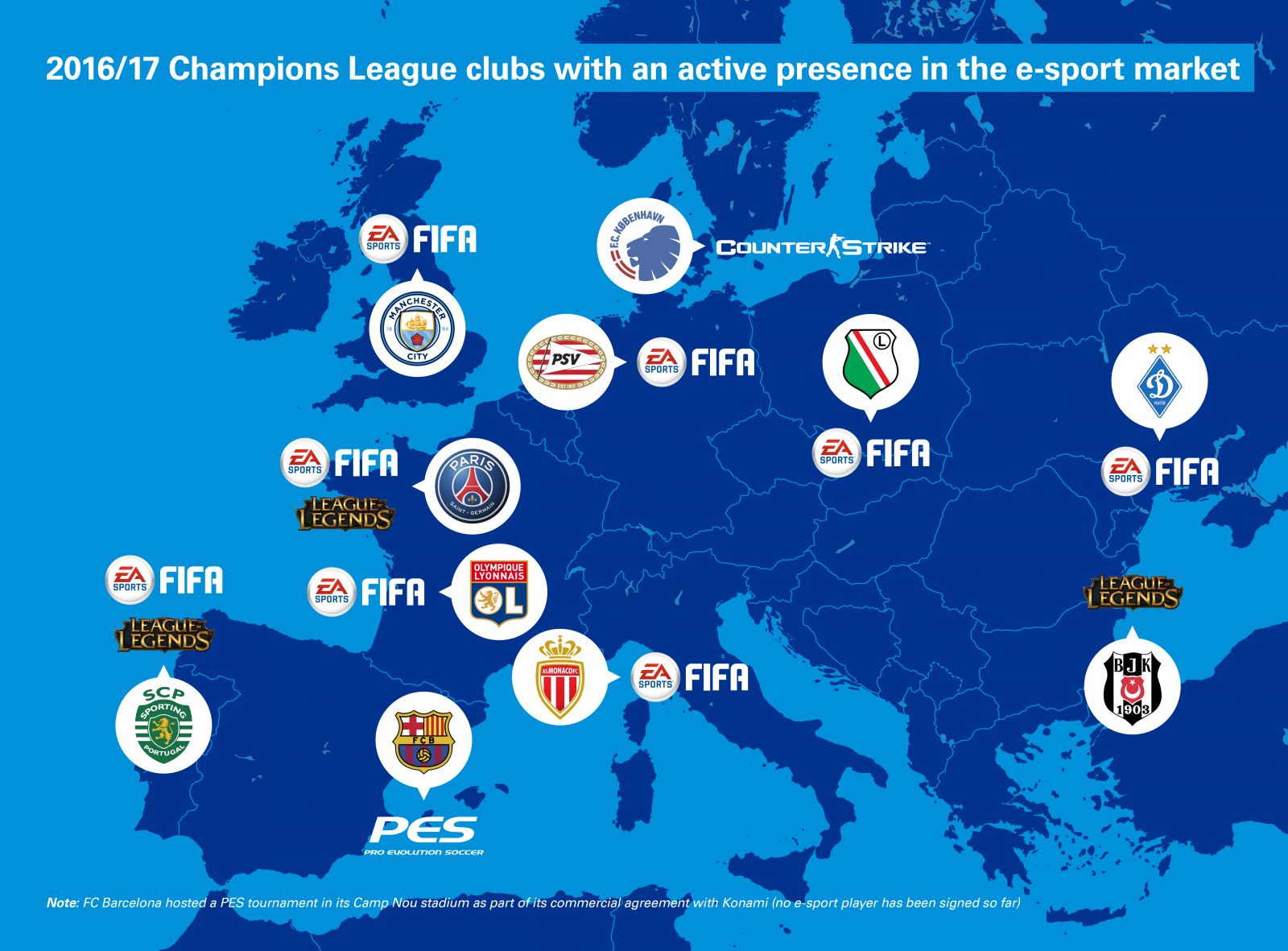March 31 – Europe’s professional clubs have moved into the e-sports market with many signing professional e-sport FIFA players to represent the clubs in domestic and international gaming competitions. An analysis by KPMG’s Football Benchmark team maps the clubs that have embraced the fast-growing and trending sector.
One surprising trend is that while most clubs have associated with EA Sports’ FIFA game, they are not restricting their engagement in the sector to this game.
“As FIFA, mainly followed by European customers, is still lagging behind non-football games in terms of online viewership, clubs such as Beşiktaş JK, FC Schalke 04, Sporting CP or Paris Saint- Germain FC have gone a step further and tied relationships with non-football video games, including the iconic League of Legends, Hearthstone and even the first-person shooter game Counter-Strike,” says the report.
It seems the wider e-sports market is more interesting to the clubs than just an association with a football-themed video game.
“Moving into these non-football games enables the clubs to fully harness e-sport´s potential as the aforementioned are among the most popular video games across the world. However, this also requires higher investments (team acquisition costs, operational costs, salaries of players and training staff, etc.) and has led clubs to follow different paths. For example, Paris Saint-Germain FC and FC Schalke 04 have acquired well-established League of Legends teams competing in international renowned leagues, while others (e.g. Beşiktaş JK, Valencia CF and Sporting CP) are developing their teams in local League of Legends leagues.”
One trend in the e-sports football area has been for European leagues to create their own competitions and platforms at national level in a bid to control the revenue stream – examples are Orange e-Ligue 1, launched in October 2016 and broadcast on beIN Sports, or the Dutch Eredivisie, which followed suit in January 2017.
The report authors say that while e-sports are not yet a significant revenue stream the sector does offer growth opportunity in the digital space
“As customer habits change, the ultimate challenge will be to keep the young audience engaged with the game, however, if clubs manage to effectively integrate e-sport in the entertaining fan experience, there is little doubt the alliance will bear fruits in the future,” concludes the report.
See the full report at https://www.footballbenchmark.com/e_sport
Contact the writer of this story at moc.l1745271562labto1745271562ofdlr1745271562owedi1745271562sni@n1745271562osloh1745271562cin.l1745271562uap1745271562

